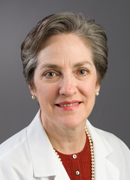
Many Americans believe heart disease affects mostly men, but the reality is that more women than men die each year from the condition.
Women typically experience different and less dramatic symptoms than men do, said Mary Dohrmann, a cardiologist at MU Health Care. “Symptoms are usually more subtle in women, and symptoms may be dismissed initially because they’re not as well-known as the symptoms men experience,” she said.
The most common cause of heart disease is the narrowing or blockage of coronary arteries. It’s the major reason people have heart attacks. For men, the classic symptoms are crushing pain in the chest or in one or both arms.
Women also experience chest pain related to heart disease, but the pressure or discomfort is not always severe or the most painful symptom, Dohrmann said.
In fact, women are more likely to have symptoms unrelated to chest pain, such as:
- neck, shoulder, upper back or abdominal discomfort
- shortness of breath
- nausea or vomiting
- profuse or abnormal sweating
- lightheadedness or dizziness
- unusual fatigue
“Because these symptoms usually are not associated with a heart attack, many women take longer to come to the hospital and eventually show up in an emergency room with more severe heart-muscle damage than do men,” Dohrmann said. “The result is a poorer outcome, which is something we want to avoid. Prevention and awareness are very important to reverse this cycle.”
Dohrmann suggests the first step in awareness for women is to know the risk factors for heart diseases. High cholesterol, high blood pressure, family history and obesity are risk factors for both men and women. There are other factors that tend to affect women more than men:
- metabolic syndrome, a combination of issues that includes an increase in the amount of fat around the abdomen, high blood pressure, high blood sugar and high triglycerides
- lack of exercise
- mental stress and depression
- smoking, which, though it raises the risk of heart disease for both genders, is a greater risk for women
- low levels of estrogen after menopause
“Choosing to actively exercise and to quit smoking are the first steps for prevention,” Dohrmann said.
MU Health Care cardiovascular specialists are offering free heart screenings 7–10 a.m. Feb. 28 at the Activity and Recreation Center, 1701 W. Ash St. Body mass index measurements, blood pressure tests and cholesterol screenings will also be offered. An appointment must be made for a cholesterol screening by calling 882-4283.
For more information about heart health, visit www.muhealth.org/heartmonth/.